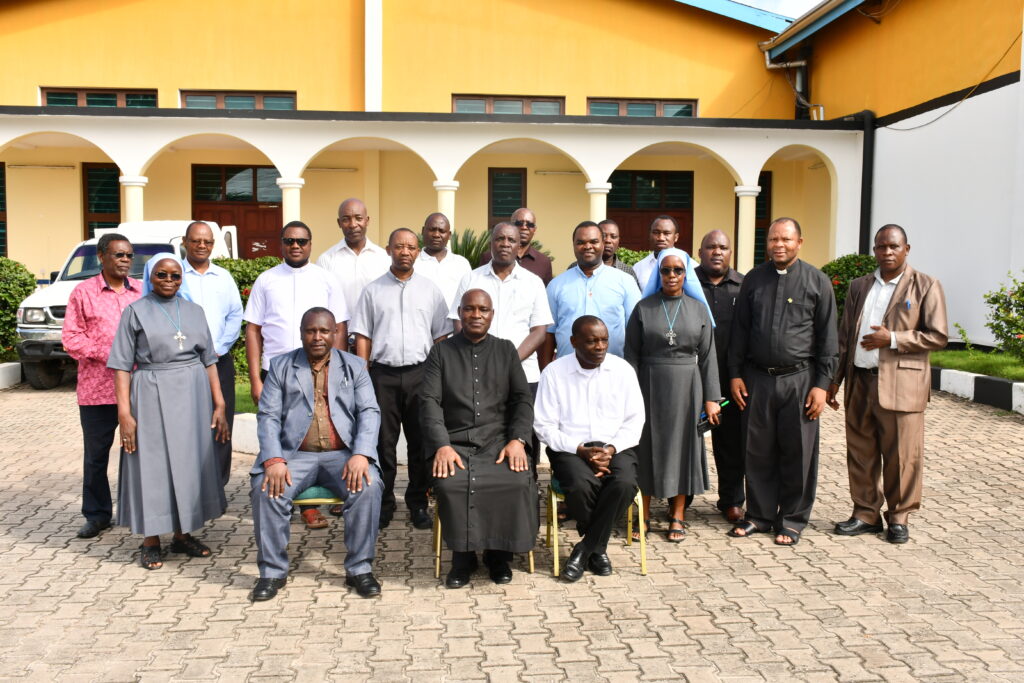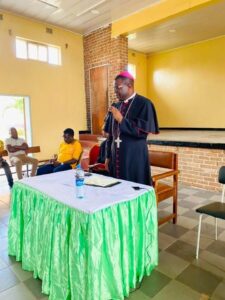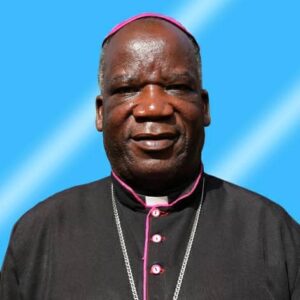TANZANIA: Protection of Children Should be the Priority of Church Society

Sarah Pelaji
There is a need to protect children according to the mission of the Church which recognizes the inalienable rights of all members of the human family (Gen 1:26). This recognition is the basis of freedom, justice and peace in the world. In addition, protection of children should be the priority of the Church and the whole society.
This was said by the Director of the Pastoral Directorate at the Tanzania Episcopal Conference TEC Rev. Florence Rutaihwa when he was opening a meeting on child protection held recently at TEC, Kurasini, in Dar es Salaam.
The meeting organized by the Department of Child Protection TEC, was attended by Coordinators of the Department of Child Protection in various Catholic Dioceses in Tanzania.
Father Rutaihwa has explained that it is in line with the Church’s mission which recognizes the inherent dignity, the equal and inalienable rights of all members of the human family (Gen 1:26). This recognition is the foundation of free will, justice and peace in the world.
Guided by this mission, we need to promote social progress and better standards of life for every person.
The United Nations in the Universal Declaration of Human Rights and the International Covenants on Human Rights, declares that every human being is entitled to all the rights and freedoms set forth therein, without distinction of any kind such as race, color, sex, language, religion, political or other opinion, national or social origin, property, birth or other status.
The Universal Declaration of Human Rights (1948) & the United Nations proclaimed that childhood is entitled to special care and assistance.
The family which is the basic cell of the human society and the natural environment for the growth and well-being of all its members, particularly children, should be given the necessary protection and assistance so that it can fully assume its responsibilities within the community.
Speaking about the recognition of a child, he noted that, according to the United Nations Convention on the Rights of the Child in 1990 article 1, a child means every human being under the age of eighteen.
In addition, Canon Law, Can 97§1 states that “a person who has completed the eighteenth year of age, has attained adulthood; below this age, a person is a minor Can 98§2 states that in the exercise of rights a minor remains subject to parents or guardians, except for those matters in which by divine or by canon law minors are exempt from such authority.
He said society there is need for the child protection policy so that it may provide for guidelines in order to properly upbring and manage children, especially those living in difficult environments and in institutions run by the Religious women, the Church and other NGOs.
“Guided by the Holy Scriptures “Let the children come to me” (Mark 10:18-15), we need to show the children love and protection by recognizing their safety and ensuring their well-being,” he emphasized.
He insisted on the need child protection policy to provide guidelines for care and management of children and other vulnerable children cared for by the Religious in various institutions.
“Today we face enormous problems in the world. Thousands of children suffer from violence, exploitation, maltreatment and various abuses daily. Yet the Convention on the rights of the Child states that all children have the right to be protected from violence, exploitation and abuse,” he noted.
He further warned on the physical or corporal punishment saying that punishment does not actually improve behavior. Instead, it brings negative mental health outcomes on the children; it increases child aggression and anti-social behavior; it increases adult criminal and anti-social behavior and decreased mental health as adults.
He further explained that, Child protection institutions should provide preventive services like a child protection counselor and discussion groups for parents and parent education, child protection should be at the centre of Early Childhood Development policy; and the goal has to be improving the quality and delivery of services.
Fr Florence concluded by insisting that priests and Religious men and women must collaborate in being close to the people of God.


